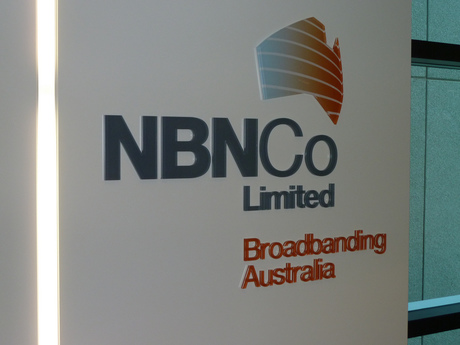NBN costs up by $15 billion; GST for online buys; McAfee on hacks, spying and himself

nbn co has increased its estimate for the cost of building the nbn by up to $15 billion. The revised estimate appears in a new corporate plan released by the company earlier this week.
nbn co CEO Bill Morrow wrote in a blog post that the company is now estimating peak funding for the network at between $46 billion and $56 billion. This represents an increase of between $5 billion and $15 billion from the $41 billion forecast in the 2013 Strategic Review of the NBN.
In the words of the new corporate plan, “Management are targeting a base case peak funding of $49 billion, which includes a contingency of $4.6 billion for unforeseen risks inherent in a complex infrastructure build over multiple years. This contingency is intended to cover revenue, operating costs and capex risks.”
Morrow wrote on the blog: “Where has this increase come from? Well, to put it bluntly, we now have a much better grasp on construction costs than we did a couple of years ago.”
Communications Minister Malcolm Turnbull mirrored Morrow’s sentiment, with The Guardian quoting Turnbull as saying: “The truth is that at the time of the strategic review the company did not accurately know what its true costs were, and inadequate financial information naturally impacted on its ability to make reliable forecasts.”
As The Guardian explained, the Abbott government has committed $29.5 billion to the construction of the nbn, meaning nbn co will have to generate the remainder of the funding itself.
On that topic, the new corporate plan said: “During the rollout period [nbn co] will raise private sector debt to complement Commonwealth equity.
“Following completion of the rollout, nbn’s board, in conjunction with the Commonwealth, will consider the optimal capital structure.”
SBS quoted Morrow as saying: “By the end of next year, we will just cross over the $29.5 billion. This is when we need to bring in external funding. That funding, we are looking at right now, today, will have to be addressed in 2017.”
Labor used the increase to criticise Turnbull. The Shadow Minister for Communications, Jason Clare, said in a statement: “The NBN is rolling out slower than Malcolm Turnbull promised, and it is more expensive than he promised.
“Malcolm Turnbull has no-one else to blame for this cost blowout. It has happened because he has made poor decisions and made the wrong assumptions,” Clare said.
GST-free threshold for foreign purchases dumped
Products costing less than $1000 that are bought online from overseas suppliers will soon carry a 10% GST, according to news reports.
The country’s state and territory treasurers have agreed with Federal Treasurer Joe Hockey to dump the existing $1000 GST-free threshold for purchases from foreign suppliers, ITnews reported. The change will reportedly take place from July 2017.
“This will deliver competitive neutrality for Australian businesses and will ensure there is a fair and equal treatment of all goods and services,” Hockey was quoted as saying.
The Guardian reported that only companies with Australian turnover of $75,000 will need to charge GST.
“We are going to have taxation officials travel around the world visiting these companies asking them to register for GST purposes,” The SMH quoted Hockey as saying.
McAfee on McAfee, IoT dangers and government spying
John McAfee, founder of McAfee Associates (which later became McAfee Inc, and later still, Intel Security Inc), last week gave a series of candid, interesting and entertaining responses in an AMA (‘Ask Me Anything’) on Reddit.
In an AMA, participants take questions submitted by members of the public. Previous participants have included Barack Obama, Bill Gates and Arnold Schwarzenegger, among many others.
The McAfee AMA covered a broad range of topics and is well worth a read for anyone interested in security or McAfee himself. On the topic of malware and the Internet of Things (IoT) devices, McAfee warned of hackable smart fridges, saying: “We’re in a dangerous situation with IoT.”
McAfee also responded to a question about governments invading citizens’ privacy for the claimed purpose of preventing terrorist attacks.
“I would be far more concerned about my gov’s use of hacking tech to control/track my movements than terrorist attacks. Terrorists are not typically focused on a single person, whereas the gov targets me. What is the goal of a dictatorship? Knowledge of everyone, not control over everyone. 1984 was government knowledge. We can fight terrorists, we cannot fight our government,” he wrote.
In response to a question about McAfee antivirus, he wrote: “McAfee is one of the worst products on the f***ing planet.”
This isn’t the first time McAfee has spoken out against the products that carry his name. When Intel announced it was getting rid of the ‘McAfee’ brand and replacing it with ‘Intel Security’, he told the BBC: “I am now everlastingly grateful to Intel for freeing me from this terrible association with the worst software on the planet. These are not my words, but the words of millions of irate users.
“My elation at Intel’s decision is beyond words,” he said at the time.
In last week’s AMA, McAfee also wrote about the longevity of antivirus as a concept, the lethargy of large companies and his time living in Belize.
Four ways AI can finally make threat intelligence useful and not just noisy
Done poorly, threat intelligence is noise. But done well, it becomes one of the most powerful...
Australia’s top tech priorities for 2026
It is anticipated that AI will evolve from a pilot project to a productive standard, underpinned...
Why AI's longevity lies in utility, not novelty
The real potential of AI is in underpinning the invisible systems powering everyday business.



